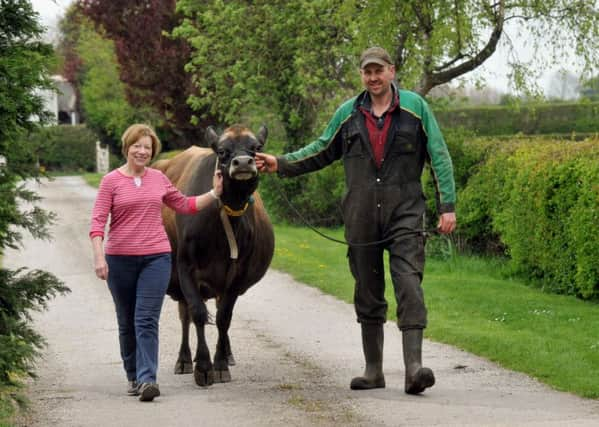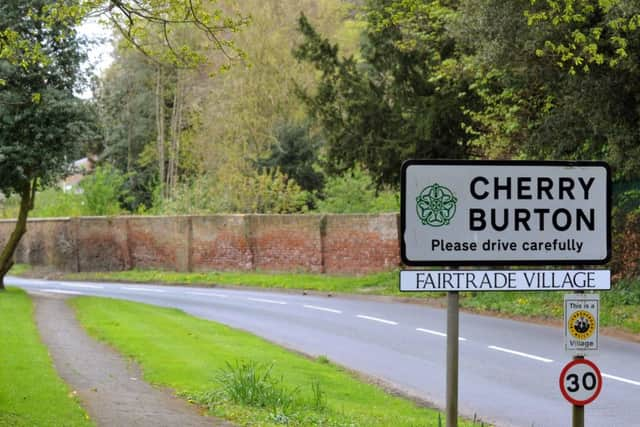Meet the East Yorkshire village that believes in Fairtrade


Recently Cherry Burton’s signs have had ‘Fairtrade Village’ added, nearly 15 years on from when it became the first such community to achieve the status in the East Riding. The work in educating villagers about farmers’ incomes, promoting their produce and turning it into regular purchases in order that growers in the developing world and at home can all benefit now sees Yorkshire with 37 Fairtrade villages, towns and cities and a further four currently working towards the standard required: Embsay, Halifax, Morley and Selby.
Cherry Burton was the second Yorkshire village to be awarded the status, in 2003, following only Haworth before it. Some 22 of the village’s organisations took part in this year’s Fairtrade Fortnight with the theme being ‘Put Fairtrade in your break and take exploitation out’.
Advertisement
Hide AdAdvertisement
Hide AdRos Stanley, secretary of the Cherry Burton Fairtrade and Local Produce steering group, said: “Our village church had a group of young people who’d heard about Fairtrade, were aware of the struggles of those in developing countries and wondered what they could do. Helen Lintern who ran the group approached a Fairtrade shop in Hull who provided stock for them to run a stall.


“The most impressive part of being involved with Fairtrade is the way in which what we do has an impact on how people can develop in the southern hemisphere. It has become a very powerful tool where people earn such a small amount for what they produce. There are now 170 countries that have Fairtrade producer groups and they are always co-operatives. Some have only ever been under control of powerful families or tribes, have no knowledge of markets, finance or agronomy.”
Cherry Burton’s Fairtrade supporters also back local producers, Ros said. “We could also see that pressures were and still are being experienced by our local farmers, albeit differently, and we wanted to give them our support too. The milk in the Peruvian coffee is from Chestnut Dairies near Hornsea and came from the cows in the village here at Field House Farm, the home of Peter, Judith and James Waring.
“What we’ve found through being a Fairtrade village and supporters of local produce is that if you manage to buy something dirt cheap it usually means the producer is not getting paid properly wherever that producer happens to live and carry out their farming or growing.”